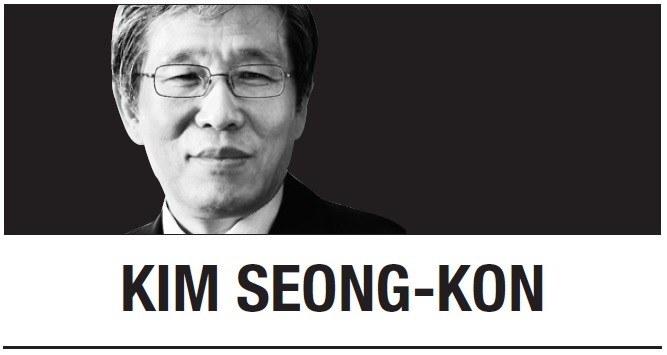[Kim Seong-kon] Seven types of abuse in our society
By Korea HeraldPublished : Nov. 1, 2023 - 05:31

Abuse, sadly, comes in a wide variety of forms. Of them, the most widely known is child abuse. In advanced countries, child abuse is a serious crime subject to heavy penalties. Some classic types of child abuse include physical abuse, emotional abuse, sexual abuse and neglect.
Accordingly, corporal punishment against children hardly exists anymore in a country such as America where children are strictly protected and widely respected. Protecting children against abusive words and violent language, at least officially, is a major priority in America. Moreover, states have laws against having sex with minors in order to protect teenagers.
Then comes elder abuse. Common forms of elder abuse are physical abuse, emotional abuse, financial abuse, neglect and abandonment. Beating up seniors, insulting them by saying that we should revoke their voting rights, phishing targeted at older people or abandoning older adults for whose care one is responsible belong to elder abuse.
Recent newspaper reports said that an older couple in California lost their home of two decades after their son transferred ownership to his girlfriend. They had purchased their home 20 years ago with their son, who later removed his parents’ names from the title and registered his girlfriend’s name instead. It could be argued that the son committed financial abuse, emotional abuse and abandoned his older parents because his evicted parents were devastated.
There are other types of abuse, too. For example, we can find hatred of or abuse against women -- misogyny -- in countries where women suffer from cultural biases and social restrictions. There is also modern-day slavery that could be considered youth abuse, such as enslaving young women in red light districts through heavy debt or forcing young men to work in fishing boats as if they were slaves.
Politicians, too, abuse people. For example, there are political leaders who start wars and send young soldiers to the battlefield who could be called guilty of soldier abuse, because countless young soldiers end up losing their lives or becoming seriously wounded on the front lines due to the recklessness or misjudgment of politicians. Political leaders who wage war are also responsible for the other country’s young soldiers being killed in action while defending their country. Therefore, politicians should think twice before invading other countries because the dead soldiers’ spirits will surely haunt them endlessly.
Dictators in totalitarian countries, too, are guilty of abusing the people because they deprive citizens of their freedom and put them under constant surveillance. They practice rule by law, instead of the rule of law, arrest people who resist them, and throw them into jail. They justify tyranny in the name of “the people.” In reality, they abuse their own people constantly.
One problem is that many victims of abuse do not realize they are being abused or even if they know, they just accept it as something inevitable. Likewise, the abusers, too, often do not think that they are abusing their victims and thus take such abuse for granted. In that sense, abuse resembles a narcotic that can paralyze our minds.
For example, many children raised in a violent home environment tend to take their parents’ abuse of them for granted, just as many people in a totalitarian country likewise accept tyranny as something normal or unavoidable. Young soldiers march to the war front without realizing that the political leaders who have ordered them to invade another country are abusing them.
Another problem with putting up with abuse is that it gives us the wrong idea that it is okay to manipulate and exploit the weak and helpless as we please. Such a tendency justifies the meanness and cruelty of those who have power and, at the same time, nurtures a spirit of servility and submissiveness among the weak and powerless.
Our candidates for high-ranking government cabinet posts exhibit another type of abuse at the National Assembly’s hearing, namely wife abuse. Whenever pressed for an answer for their past problematic or illegal activities that might disqualify them, our candidates always come up with the same excuse: “I didn’t know about it because my wife did it.” It is shameful and disgrace for a man to blame his wife for whatever he is being confronted with in public. We would like to see our leaders boldly say, “I did it. My wife has nothing to do with it. I’ll take responsibility” -- even if his wife did something. That is what a decent man would do, not to mention the leaders of a country.
Unfortunately, in our society, many reptile-like men abuse or prey on those who are in trouble and need help. We should stop abusing and taking advantage of the weak and frail. Instead, we should help and protect them because that is what a knightly, honorable man would do.
Kim Seong-kon
Kim Seong-kon is a professor emeritus of English at Seoul National University and a visiting scholar at Dartmouth College. The views expressed here are his own. -- Ed.
-
Articles by Korea Herald











![[Kim So-hyun] The quiet taxi driver from Paris](http://res.heraldm.com/phpwas/restmb_idxmake.php?idx=644&simg=/content/image/2024/04/25/20240425050891_0.jpg&u=)







